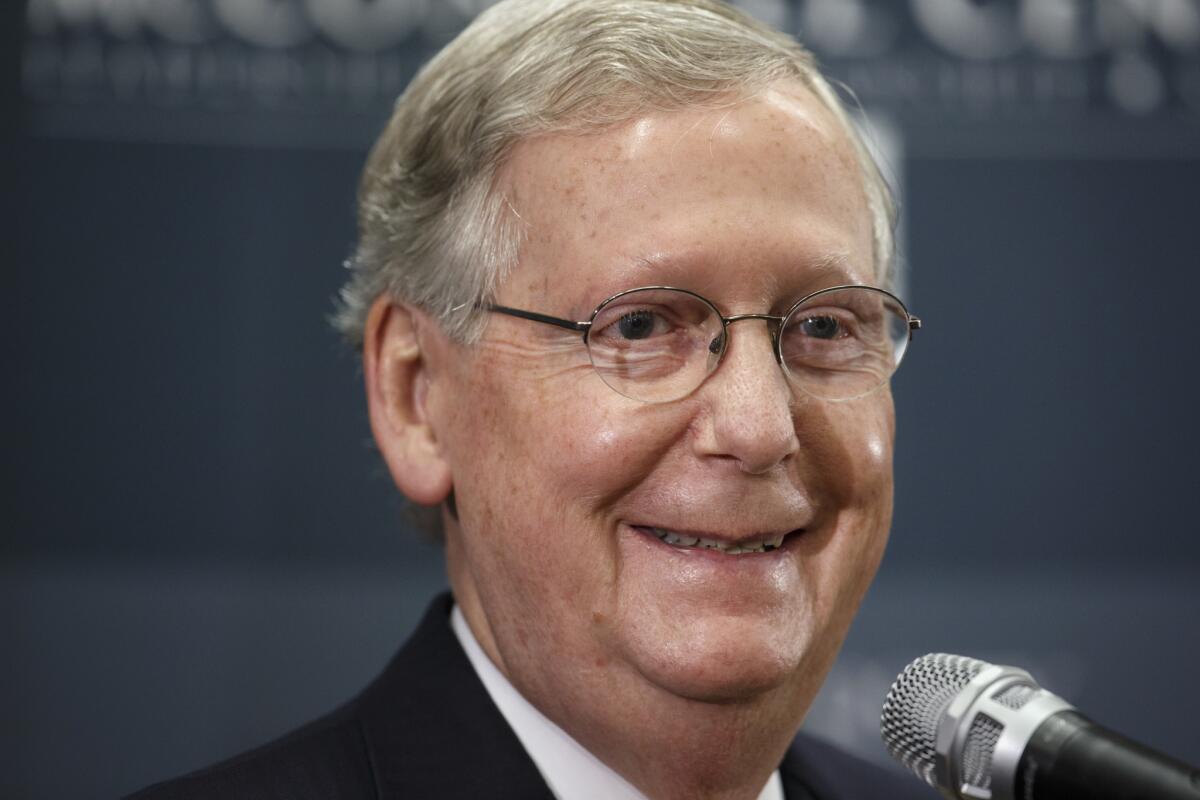Editorial: Time to stop obstruction in Congress

- Share via
Now that Republicans control both houses of Congress, some pundits have said the onus is on the GOP — and particularly the Senate’s presumptive new majority leader, Mitch McConnell (R-Ky.) — to end the gridlock and dysfunction that have plagued Washington over the past four years. That analysis, however, ignores the power that Senate Democrats and President Obama will have to gum up the legislative machinery. Habitual filibusters by Democrats in the next Congress would be just as obstructionist as those by Republicans have been in the current one. So too would be a flat refusal by the administration to negotiate. If anything is to be accomplished, both sides will have to make it happen.
The last two Congresses have been the least productive in modern history, enacting the fewest bills into law and accomplishing almost nothing on the weak economy, aging infrastructure and stagnating incomes. Senate Republicans’ incessant filibusters contributed to the problem, as did the House GOP leadership’s decision to block virtually all measures not backed by the vast majority of its members. But the dysfunction was abetted by Senate Majority Leader Harry Reid (D-Nev.), who stopped the Senate from voting on anything politically sensitive.
The result was a complete breakdown of the deliberative process. The obstructionism was compounded by a calcification of ideas and a rejection of modest progress in favor of headline-grabbing failure. Rather than offering new approaches in response to partisan pushback, lawmakers and Obama kept trotting out the same proposals, as if voting yet again to repeal Obamacare or impose more gun control could possibly produce a different outcome.
McConnell and Obama struck the now-familiar post-election notes of conciliation, but they were the right notes. Senate Democrats should heed the voters’ call for a more functional government and resist the temptation to pay back Republicans with continual holds and filibusters. That means reserving the filibuster for when the GOP tries to ram through measures anathema to Democrats across the country, not using it to obstruct votes on proposals that put vulnerable incumbents in a tough spot.
Meanwhile, some conservative groups are calling on Republicans to try to remake government in a purely GOP image. But there’s no point using their newfound majority to push through divisive, partisan measures that Obama will surely veto. That’s just an exercise in posturing for the next election. Given how polarized the parties have become, the real obstructionism comes when politicians devote themselves to showcasing their differences, rather than searching for common ground.
Follow the Opinion section on Twitter @latimesopinion
More to Read
A cure for the common opinion
Get thought-provoking perspectives with our weekly newsletter.
You may occasionally receive promotional content from the Los Angeles Times.









